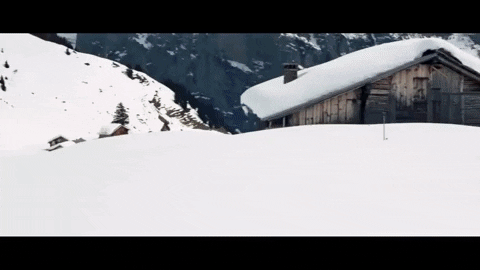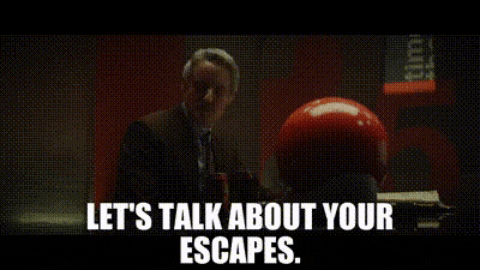Saturday, 13 November 2021
Phobia
Fear of The Dark
Friday, 12 November 2021
Authority
“It is a good thing to be An Authority. People are fragile. Because of that, life is difficult and suffering common. Ameliorating that suffering — ensuring that everyone has food, clean water, sanitary facilities, and a place to take shelter, for starters—takes initiative, effort, and ability. If there is a problem to be solved, and many people involve themselves in the solution, then a hierarchy must and will arise, as those who can do, and those who cannot follow as best they can, often learning to be competent in the process. If the problem is real, then the people who are best at solving the problem at hand should rise to the top. That is not Power. It is The Authority that properly accompanies ability.
Now, it is self-evidently appropriate to grant power to competent authorities, if they are solving necessary problems; and it is equally appropriate to be one of those competent authorities, if possible, when there is a perplexing problem at hand. This might be regarded as a philosophy of responsibility. A responsible person decides to make a problem his or her problem, and then works diligently — even ambitiously — for its solution, with other people, in the most efficient manner possible (efficient, because there are other problems to solve, and efficiency allows for the conservation of resources that might then be devoted importantly elsewhere).
Ambition is often — and often purposefully — misidentified with The Desire for Power, and damned with faint praise, and denigrated, and punished. And ambition is sometimes exactly that wish for undue influence on others. But there is a crucial difference between sometimes and always. Authority is not mere power, and it is extremely unhelpful, even dangerous, to confuse the two. When people exert Power over others, they compel them, forcefully. They apply the threat of privation or punishment so their subordinates have little choice but to act in a manner contrary to their personal needs, desires, and values.
When people wield Authority, by contrast, they do so because of their competence — a competence that is spontaneously recognised and appreciated by others, and generally followed willingly, with a certain relief, and with the sense that Justice is being served.
Those who are power hungry — tyrannical and cruel, even psychopathic — desire control over others so that every selfish whim of hedonism can be immediately gratified; so that envy can destroy its target; so that resentment can find its expression. But good people are ambitious (and diligent, honest, and focused along with it) instead because they are possessed by the desire to solve genuine, serious problems. That variant of ambition needs to be encouraged in every possible manner. It is for this reason, among many others, that the increasingly reflexive identification of the striving of boys and men for victory with the “patriarchal tyranny” that hypothetically characterizes our modern, productive, and comparatively free societies is so stunningly counterproductive (and, it must be said, cruel: there is almost nothing worse than treating someone striving for competence as a tyrant in training). “Victory,” in one of its primary and most socially important aspects, is the overcoming of obstacles for the broader public good. Someone who is sophisticated as a winner wins in a manner that improves the game itself, for all the players. To adopt an attitude of naive or willfully blind cynicism about this, or to deny outright that it is true, is to position yourself—perhaps purposefully, as people have many dark motives—as an enemy of the practical amelioration of suffering itself. I can think of few more sadistic attitudes.
Now, power may accompany authority, and perhaps it must. However, and more important, genuine authority constrains the arbitrary exercise of power. This constraint manifests itself when the authoritative agent cares, and takes responsibility, for those over whom the exertion of power is possible. The oldest child can take accountability for his younger siblings, instead of domineering over and teasing and torturing them, and can learn in that manner how to exercise authority and limit the misuse of power. Even the youngest can exercise appropriate authority over the family dog. To adopt authority is to learn that power requires concern and competence—and that it comes at a genuine cost. Someone newly promoted to a management position soon learns that managers are frequently more stressed by their multiple subordinates than subordinates are stressed by their single manager. Such experience moderates what might otherwise become romantic but dangerous fantasies about the attractiveness of power, and helps quell the desire for its infinite extension. And, in the real world, those who occupy positions of Authority in functional hierarchies are generally struck to the core by the responsibility they bear for the people they supervise, employ, and mentor.
Not everyone feels this burden, of course. A person who has become established as an authority can forget his origins and come to develop a counterproductive contempt for the person who is just starting out. This is a mistake, not least because it means that the established person cannot risk doing something new (as it would mean adopting the role of despised fool). It is also because arrogance bars the path to learning. Shortsighted, willfully blind, and narrowly selfish tyrants certainly exist, but they are by no means in the majority, at least in functional societies. Otherwise nothing would work.
The Authority who remembers his or her sojourn as voluntary beginner, by contrast, can retain their identification with the newcomer and the promise of potential, and use that memory as the source of personal information necessary to constrain the hunger for power. One of the things that has constantly amazed me is the delight that decent people take in the ability to provide opportunities to those over whom they currently exercise authority. I have experienced this repeatedly: personally, as a university professor and researcher (and observed many other people in my situation doing the same); and in the business and other professional settings I have become familiar with. There is great intrinsic pleasure in helping already competent and admirable young people become highly skilled, socially valuable, autonomous, responsible professionals. It is not unlike the pleasure taken in raising children, and it is one of the primary motivators of valid ambition. Thus, the position of top dog, when occupied properly, has as one of its fundamental attractions the opportunity to identify deserving individuals at or near the beginning of their professional life, and provide them with the means of productive advancement.
Mount Moriah


OHMSS is the first one

For My Culture
Wednesday, 10 November 2021
WHY is Everyone Ashamed of This Shit?
Escape
Tuesday, 9 November 2021
Look Like
Imagine A Cave
where those inside never see
The Outside World.
Instead, they see
shadows of that world
Projected on The Cave Wall.
[MONKEY CHATTERING.]
The World They See
in The Shadows is not
The Real World.
Three, two, one, liftoff.
But it's Real to Them.
If you were to show Them
The World as it actually is,
They would reject it as incomprehensible.
Now what if, instead of being in A Cave, you were out in The World,
except you couldn't see it.
[OVERLAPPING VOICES ON PHONE.]
Because You weren't Looking.
[PHONES CHIMING.]
Because You Trusted that The World You Saw through The Prism was The Real World.
[CLUCKING.]
[CAMERA CLICKS.]
[TYPING.]
[PHONE CHIMES.]
[TYPING.]
But there's A Difference.
[PHONE CHIMES.]
You see, unlike
The Allegory of The Cave,
where The People are Real
and The Shadows are false, here,
Other People are The Shadows —
Their Faces.
Their Lives.
This is The Delusion
of The Narcissist,
who believes that
They alone are Real.
- [PHONE CHIMING.]
- [TYPING.]
[PHONE CHIMES.]
Their feelings are the only feelings that matter because Other People are just Shadows,
and Shadows Don't Feel.
Because They're
Not Real.
[HORN HONKS.]
But what if everyone
lived in caves?
[LAPTOP CHIMING.]
Then no one would be Real.
Not even you.
Unless one day you woke up
and left The Cave.
How strange The World would look
after a lifetime of staring at Shadows.
[TYPING, PHONES CHIMING.]
[PHONE CHIMES.]
[THUNDER CRACKS.]
[THUNDER RUMBLING.]
“We end the Golden Age as it began, with Superman—one of the last survivors of the initial brief expansion and rapid contraction of the DC universe. It had been too much too soon for the superheroes, but although many of them would lie dormant for decades, no potential trademark truly dies. The superheroes, like cockroaches or Terminators, are impossible to kill. But in 1954 a sinister scientist straight from the pages of the comics tried to wipe them all out and came close to succeeding.
As the lights went out on the Golden Age, characters such as Superman, Batman, and Wonder Woman, who’d achieved a wider recognition thanks to serials and merchandising, survived the cull. Because of their status as backup strips in Adventure Comics, second stringers like Green Arrow and Aquaman weathered the storm—perhaps undeservedly—but the survivors did not always flourish.
For instance, a popular TV series (1953’s The Adventures of Superman) had cemented Superman’s status as an American icon, but budgetary restrictions meant that its star, the likeable but ultimately troubled George Reeves, was rarely seen in the air. At best, he might jump in through a window at an angle that suggested methods of entry other than flight, possibly involving trampolines. The stories revolved around low-level criminal activity in Metropolis and ended when Superman burst through another flimsy wall to apprehend another gang of bank robbers or spies. Bullets would bounce from his monochrome chest (the series was shot and transmitted before color TV, so Reeves’s costume was actually rendered in grayscale, not red and blue, which wouldn’t have contrasted so well in black and white.)
Reeves, at nearly forty, was a patrician Superman with a touch of gray around the temples and a physique that suggested middle-aged spread rather than six-pack, but he fit the mold of the fifties establishment figure: fatherly, conservative, and trustworthy. The problem with Superman was more obvious in the comic books. By aping the kitchen-sink scale of the Reeves show, Superman’s writers and artists squandered his epic potential on a parade of gangsters, pranksters, and thieves. The character born in a futurist blaze of color and motion had washed up on a black-and-white stage set, grounded by the turgid rules of a real world that kept his wings clipped and his rebel spirit chained. Superman was now locked into a death trap more devious than anything Lex Luthor could have devised. Here was Superman—even Superman—tamed and domesticated in a world where the ceiling, not the sky, was the limit.